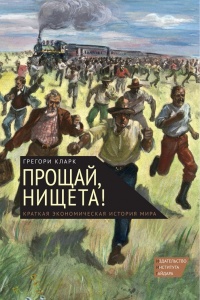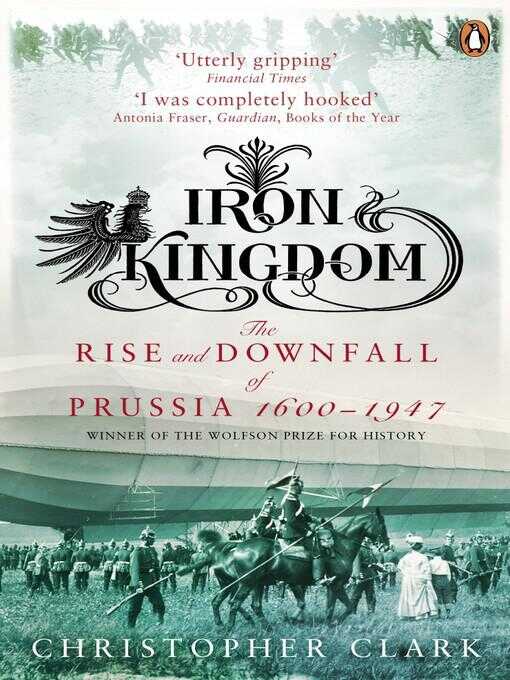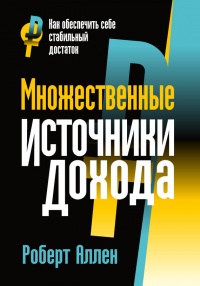Читать книгу - "Прощай, нищета! Краткая экономическая история мира - Грегори Кларк"
Аннотация к книге "Прощай, нищета! Краткая экономическая история мира - Грегори Кларк", которую можно читать онлайн бесплатно без регистрации
Hamilton, Gillian, and Gregory Clark. 2006. «Economic Status and Reproductive Success in New France». Working Paper, University of Toronto.
Hanawalt, Barbara A. 1976. «Violent Death in England in the Fourteenth and Early Fifteenth Centuries». Comparative Studies in Society and History 18: 297–320.
— 1979. Crime and Conflict in Medieval England, 1300-48. Cambridge, Mass.: Harvard University Press.
Hanley, Susan B. 1997. Everyday Things in Premodern Japan: The Hidden Legacy of Material Culture. Berkeley: University of California Press.
Harley, C. Knick. 1998. «Cotton Textile Prices and the Industrial Revolution». Economic History Review 51 (1): 49–83.
Harris, Rivkah. 1968. «Some Aspects of the Centralization of the Realm Under Hammurapi and His Successors». Journal of the American Oriental Society 88 (4): 727–732.
Harvey, Barbara. 1993. Living and Dying in England 1100–1540: The Monastic Experience. Oxford: Clarendon Press.
Hauser, William B. 1974. Economic Change in Tokugawa Japan: Osaka and the Kinai Cotton Trade. New York: Cambridge University Press.
Hawkes, Ernest William. 1916. «Skeletal Measurements and Observations of the Point Barrow Eskimo with Comparisons with Other Eskimo Groups». American Anthropologist, New Series 18 (2): 203–244.
Headrick, Daniel. 1988. The Tentacles of Progress: Technology Transfer in the Age of Imperialism, 1850–1940. Oxford: Oxford University Press.
Helps, Arthur. 1874. Life and Labours of Mr. Brassey, 1805–1870. Boston: Roberts Brothers.
Henderson, W.O. 1965. Britain and Industrial Europe, 1750–1870: Studies in British Influence on the Industrial Revolution in Western Europe. Leicester: Leicester University Press.
Herlihy, David. 1967. Medieval and Renaissance Pistoia; The Social History of an Italian Town, 1200–1430. New Haven, Conn.: Yale University Press.
Heston, Alan. 1983. «National Income». In The Cambridge Economic History of India, Vol. 2: с. 1757 — с. 1970, eds. Dharma Kumar and Meghnad Desai. New York: Cambridge University Press, pp. 376–462.
Heston, Alan, Robert Summers, and Bettina Aten. 2006. Penn World Table Version 6.2. Philadelphia: Center for International Comparisons of Production, Income and Prices at the University of Pennsylvania.
Hill, Kim, and A.M. Hurtado. 1996. Ache Life History: The Ecology and Demography of a Foraging People. New York: Aldine de Gruyter.
Ho, Jun Seong, and James B. Lewis. 2006. «Wages, Rents and Interest Rates in Southern Korea, 1700–1900». Research in Economic History 24: 217–283.
Ho, Ping-Ti. 1959. «Aspects of Social Mobility in China, 1368–1911». Comparative Studies in Society and History 1 (4): 330–359.
Hobbes, Thomas. 1651. Leviathan. London.
Hollingsworth, Thomas H. 1965. The Demography of the British Peerage. London: Population Investigation Committee, LSE.
Homer, Sidney, and Richard Sylla. 1996. A History of Interest Rates, 3rd ed. New Brunswick, N.J.: Rutgers University Press.
Hopkins, Keith. 1966. «On the Probable Age Structure of the Roman Population. Population Studies 20 (2): 245–264.
Houghton, Philip. 1996. People of the Great Ocean: Aspects of the Human Biology of the Early Pacific. Cambridge, U.K.: Cambridge University Press.
Houston, R.A. 1982. «The Development of Literacy: Northern England, 1640–1750». Economic History Review 35: 199–216.
Hudson, Michael. 2000. «How Interest Rates Were Set, 2500 ВС -1000 AD: Mas, Tokos, and Foenus as Metaphors for Interest Accruals». Journal of the Economic and Social History of the Orient 43 (2): 132–161.
Hunter, Richard A., and Ida Macalpine. 1963. Three Hundred Years of Psychiatry, 1535–1860. London: Oxford University Press.
Hurtado, A. Magdalena, and Kim R. Hill. 1987. «Early Dry Season Subsistence Ecology of Cuiva (Hiwi) Foragers of Venezuela». Human Ecology 15 (2): 163–187.
— 1990. «Seasonality in Foraging Society: Variation in Diet, Work Effort, Fertility, and Sexual Division of Labor among the Hiwi of Venezuela». Journal of Anthropological Research 46 (3): 293–346.
Hutchins, John, Richard Gough, and J. B.Nichols. 1796. The History and Antiquities of the County of Dorset, Vol. 1. London: J. Nichols.
Ingram, Martin. 1985. «The Reform of Popular Culture? Sex and Marriage in Early Modern England». In Popular Culture in the Seventeenth Century, ed. Barry Reay. Kent, U. K.: Beckenham, pp. 129–165.
International Labour Organization, Bureau of Statistics. 2006a. Occupational Wages and Hours of Work and Retail Food Prices: Statistics from the ILO October Inquiry. Geneva: International Labour Organization.
— 2006b. Yearbook of Labour Statistics. Geneva: International Labour Organization.
Jackson, Stanley. 1968. The Sassoons. London: Heinemann.
Jacob, William. 1826. Report on the Trade in Foreign Corn and on the Agriculture of the North of Europe. London: James Ridgeway.
Jannetta, Ann Bowman. 1992. «Famine Mortality in Nineteenth Century Japan: The Evidence from a Temple Death Register». Population Studies 46 (3): 427–443.
Jannetta, Ann Bowman, and Samuel Preston. 1991. «Two Centuries of Mortality Change in Central Japan: The Evidence from a Temple Death Register». Population Studies 45 (3): 417–436.
Jeans, James. 1884. «On the Comparative Efficiency and Earnings of Labour at Home and Abroad». Journal of the Statistical Society of London 47 (4): 614–665.
Jenike, Mark R. 2001. «Nutritional Ecology: Diet, Physical Activity, and Body Size». In Hunter-Gatherers: an Interdisciplinary Perspective, eds. Catherine Panter-Brick, Robert H. Layton, and Peter Rowley-Conwy. Cambridge, U.K.: Cambridge University Press, pp. 205–238.
Jevons, F. B. 1895. «Work and Wages in Athens». Journal of Hellenistic Studies 15: 239–247.
— 1896. «Some Ancient Greek Pay Bills». Economic Journals (23): 470–475.
Johnson, A. 1975. «Time Allocation in a Michiguenga Community». Ethnology 14 (3): 310–321.
Johnson, Allen C. 1936. Roman Egypt to the Reign of Diocletian: An Economic Survey of Ancient Rome, Vol. II, ed. Tenney Frank. Baltimore: Johns Hopkins University Press.
Jones, Charles I. 2002. Introduction to Economic Growth, 2nd ed. New York: W.W.Norton.
Jones, Rhys. 1977. «The Tasmanian Paradox». In Stone Tools as Cultural Markers, ed. R.V. S.Wright. Canberra: Australian Institute of Aboriginal Studies, pp. 189–204.
— 1978. «Why Did the Tasmanians Stop Eating Fish?» In Explorations in Ethnoarchaeology, ed. R.A. Gould. Albuquerque: University of New Mexico Press, pp. 11–48.
Jun, By Seong Ho, and James B. Lewis. 2006. «Labor Costs. Land Prices, Land Rent, and Interest Rates in the Southern Region of Korea. Research in Economic History 24: 217–283.
Прочитали книгу? Предлагаем вам поделится своим впечатлением! Ваш отзыв будет полезен читателям, которые еще только собираются познакомиться с произведением.
Оставить комментарий
-
 Илья12 январь 15:30
Книга прекрасная особенно потому что Ее дали в полном виде а не в отрывке
Горький пепел - Ирина Котова
Илья12 январь 15:30
Книга прекрасная особенно потому что Ее дали в полном виде а не в отрывке
Горький пепел - Ирина Котова
-
 Гость Алексей04 январь 19:45
По фрагменту нечего комментировать.
Бригадный генерал. Плацдарм для одиночки - Макс Глебов
Гость Алексей04 январь 19:45
По фрагменту нечего комментировать.
Бригадный генерал. Плацдарм для одиночки - Макс Глебов
-
 Гость галина01 январь 18:22
Очень интересная книга. Читаю с удовольствием, не отрываясь. Спасибо! А где продолжение? Интересно же знать, а что дальше?
Чужой мир 3. Игры с хищниками - Альбер Торш
Гость галина01 январь 18:22
Очень интересная книга. Читаю с удовольствием, не отрываясь. Спасибо! А где продолжение? Интересно же знать, а что дальше?
Чужой мир 3. Игры с хищниками - Альбер Торш
-
 Олена кам22 декабрь 06:54
Слушаю по порядку эту серию книг про Дашу Васильеву. Мне очень нравится. Но вот уже третий день захожу, нажимаю на треугольник и ничего не происходит. Не включается
Донцова Дарья - Дантисты тоже плачут
Олена кам22 декабрь 06:54
Слушаю по порядку эту серию книг про Дашу Васильеву. Мне очень нравится. Но вот уже третий день захожу, нажимаю на треугольник и ничего не происходит. Не включается
Донцова Дарья - Дантисты тоже плачут





